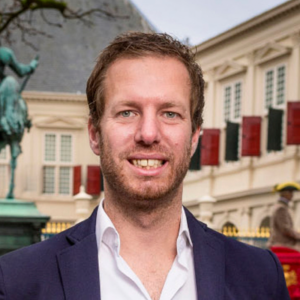Remembering Shelley at Elcot Park
At Elcot Park, the Shelley family cherished the memory of a brilliant mind and tragic life. Lady Elizabeth bought the Retreat at Elcot Park in 1844. Her son, the Romantic poet Percy Bysshe Shelley, drowned over twenty years earlier when he was only 29.
Lady Shelley and her husband, Sir Timothy, had struggled with their son. He accumulated debt and scandal with abandon. He rejected God’s existence when he was just a teenager. Atheism in the early 1800s was anathema to polite society, and Sir Timothy was livid. Their fights grew so extreme that Sir Timothy banished Shelley from his childhood home. Lady Shelley had always been more moderate, writing once that she didn’t see why an atheist could not be a good man. She tried to send her son money without her husband’s knowledge, but he sent it back. Once, she smuggled Shelley into his childhood home to see his sisters and briefly revisit his happy childhood.
Hellen and Margaret, the poet’s unmarried sisters, lived at Elcot Park for years after their mother died in 1846. They had watched their brother’s reputation transform after his death. He had died in infamy — society would not tolerate an atheist who lived out the principles of free love. Critics did not recognize the ingenuity of his poetry for decades. But in Hellen and Margaret’s old age, they saw Shelley enter the British canon.
Thomas Jefferson Hogg, one of Shelley’s biographers, was a close friend of the poet from Oxford. He met the sisters to ask questions about their brother. “There is something weird about them; and there ought to be…They are fit sisters for a poet and a necromancer,” he wrote to Mary Shelley, Shelley’s widow. They had the same “large wild starting eyes” as their long-dead brother.
Hellen and Margaret understood that their early memories could help their brother be remembered truthfully. They sat late into the evenings at Elcot Park reminiscing about their older brother. Letters Hellen wrote at Elcot Park remain the brightest windows into Shelley’s childhood.
Hellen defended her brother in her old age. Some critics insisted that he had never had a strong education, so she recounted his daily lessons in Latin. She described how he memorized whole poems after reading them just once. To her eye, not even the emotive rendering of Shelley that hangs at Elcot Park today captured the slight and energetic figure of her poet brother and the “wild, fixed beauty” of his eyes.
“Bysshe was certainly fond of eccentric amusements, but they delighted us as children,” Hellen remembered. Shelley had five younger sisters, although only three lived into adulthood. At school, older boys bullied him violently for his sensitive temper and feminine manners. But at home, he had an adoring audience eager to participate in his colorful imagination. At his prompting, the children dressed up as fairies and fiends to tromp through the countryside. At Elcot Park, Hellen still remembered the stories he told them about an Alchemist who lived in an unused garret of their home reading his books of black magic by the light of a lamp. But Shelley saw his sisters only rarely after he was sent to Eton at 10, and they missed him.
“Poor fellow!” regretted Helen. “Why did he not live fifty years later: when he would have been assisted by the wonderful improvements of age in directing his gifted and inquisitive mind?”
Shelley had hoped that his sisters would grow into independent thinkers who defied the constraints of religion and 19th-century morality. They had money of their own and with it a path to independence that was open to few women in their time. He encouraged Hellen to be a poet, binding her juvenile rhymes into a book because he saw them as the seeds of genius. In secret, he wrote her a letter years when she was a teenager urging her to rebel. “Thinking, and thinking without letting anything but reason influence your mind, is the great thing,” he wrote. The letter never reached Hellen. Hellen and Margaret chose never to marry, and they were well-read women who had at least 700 volumes in their library at Elcot Parl. But they were no rebels. Hellen wrote that her dearest wish for her brother was that in his last moments, drowning in the Mediterranean, he accepted God.
More about the history of The Retreat at Elcot Park


